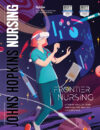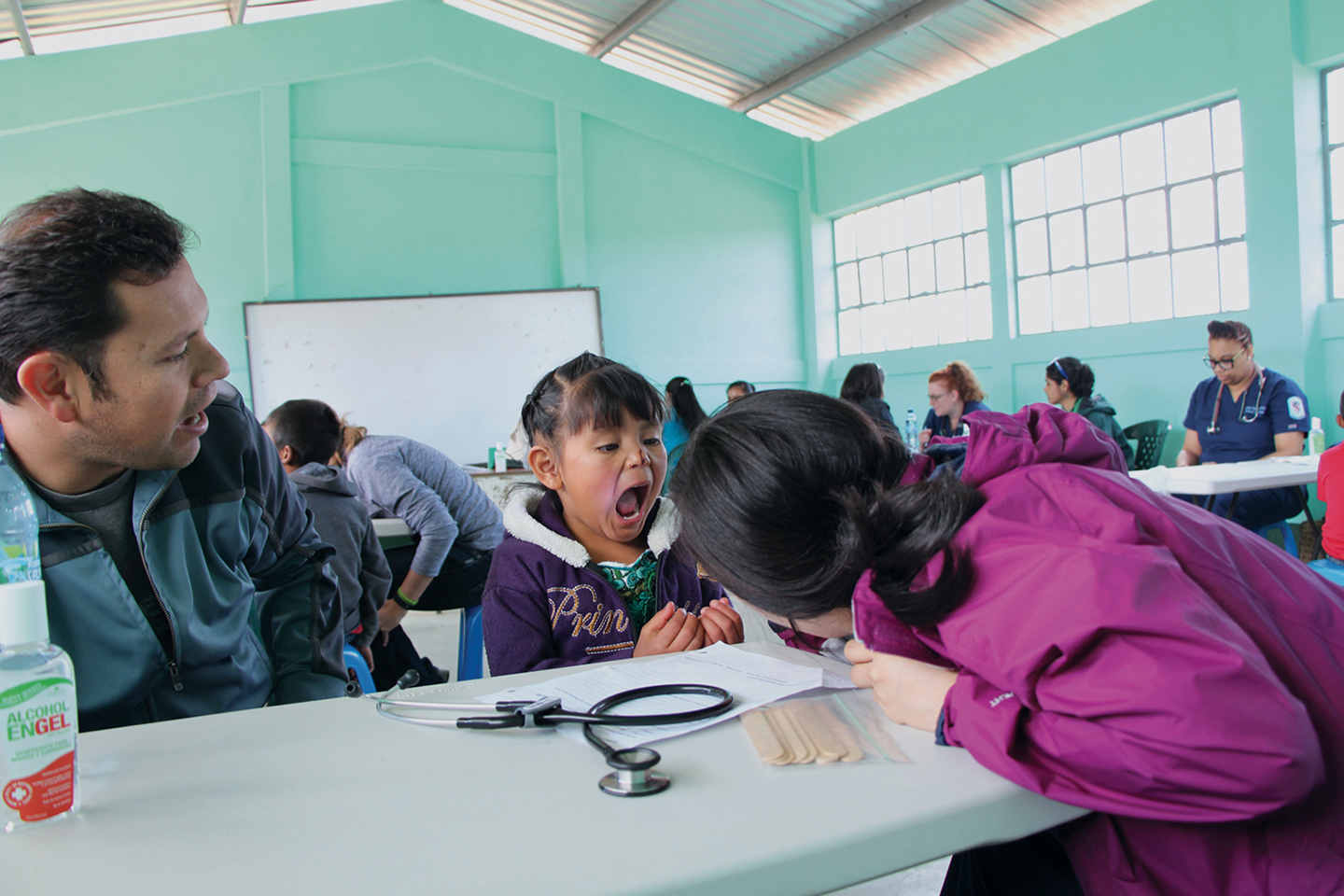Center for Global Initiatives a force multiplier for nurses and health care across the world
The world needs to invest more in nursing, the backbone of any health system and essential to the achievement of the Sustainable Development Goals.
It seems simple enough to say it. But as Nancy Reynolds, PhD, RN, FAAN, professor and director of the Center for Global Initiatives (CGI) at the Johns Hopkins School of Nursing, will tell you, optimizing the full contribution of the nursing profession remains a critical challenge. As seen vividly with the COVID-19 pandemic, health problems of the 21st century transcend national boundaries. While many agree that well-prepared nurses are critical for the actual delivery of health care around the globe, what is less well appreciated are the unique contributions of nurses in creating solutions in global health care delivery. Importantly, nurses are educated to evaluate social, psychological, economic, and biological aspects of health and illness, making them uniquely qualified to address interrelated determinants of health and develop evidence for sustainable global health solutions.
Awakening and harnessing that power is where everything starts for CGI. Established in 2011, the center serves as an operational umbrella—a force multiplier—for existing and developing international education, practice, research, and policy initiatives. The idea is building knowledge infrastructure to inform policy and support the capacity development of a diverse cadre of local nurse scholars, educators, and practitioners who are best positioned to address the local health challenges of their own health care systems
and communities.
It is an approach to health equity and sustainable change that has led to international collaborations in 26 countries, from India, to Bahrain, to the Democratic Republic of Congo, to the Philippines, to Ukraine, to Guatemala, with more memoranda of understanding, or MOUs, in the works. Most have included consultation with schools of nursing on establishing graduate programs, webinars on mutual topics of interest, and building or enhancing research infrastructure and capacity, “like an NGO of knowledge,” explains Reynolds.
Facilitating local-to-global knowledge exchange and development is a win-win.”
CGI also brings some of the brightest minds from partner nations to JHSON as international visiting scholars to work directly with top nursing researchers and providers. “Facilitating local-to-global knowledge exchange and development is a win-win. It is never a one-directional thing,” says Reynolds, also associate dean of global affairs at JHSON; director of the World Health Organization’s Collaborating Centre for Nursing Information, Knowledge Management; and co-secretary general of the Global Network of the WHO Collaborating Centers of Nursing and Midwifery. Her own research focuses on low-cost cellphone technology to improve the management of HIV among vulnerable populations, primarily in collaboration with colleagues in Ghana and India.
‘Community-Driven’
Part of the secret to community care in more remote or less resourced parts of the globe is to remember why you are there—even when you aren’t there physically—and who you are serving, those who will still be living there when you have moved on.
“You need to remember the human aspect,” explains Associate Professor Catherine Ling, PhD, FNP-BC, FAAN. Through the CGI, Ling directs efforts to support rural community health care capacity in Guatemala. JHSON students have traditionally spent time on the ground in the Central American nation each year doing health screenings, community education, minor physical infrastructure like installing stoves, and learning to work as a team—and to hear as well as see the need.
“These missions are community-driven,” explains Ling, whose own scholarship is focused on improving primary care for vulnerable populations. “We approach health care with the recognition of the community as the driver of care, not as secondary,” Ling says. “The community will let you know what it needs. We must be holistic and multifaceted in our approach to be authentic.”
We approach health care with the recognition of the community as the driver of care, not as secondary.”
The COVID-19 pandemic has of course limited any official travel for JHSON groups, so the Guatemala experience has been a virtual one since 2020, the last time Ling was there. Today, she’s here to report that the virtual experience, using simulation technology, can in some significant ways be better. Take equity—for the nursing students themselves. Even though Johns Hopkins takes care of many of the logistics, students must balance financial and time costs. Remove the boots-on-the-ground aspect and far more students can fit. Meaning that while in-person trips can accommodate six to eight students, “That’s half of what we can do virtually,” says Ling. “We want to make sure it’s open to any student who’d like to have the experience … prelicensure, DNP, or PhD.”
Far from limiting, the virtual experience has allowed students to stick to community need and how to address it as a group. The tech is outstanding and simulations are “complex and layered,” Ling explains, while data and control end up in the hands of these community groups, where it should be.
“These are rural, underserved communities with very specific needs,” Ling says. “We were free to address these very specific needs, to focus.” And far from disappointment at never leaving East Baltimore, the latest Guatemala cohort nevertheless gave a thumbs up to the experience of collaborating and making a difference. As Ling says, the care doesn’t change, whether you’re at a villager’s door or at the other end of a Zoom call. “Our grassroots practice is our global practice.”
Learn more about the CGI at nursing.jhu.edu/CGI.

